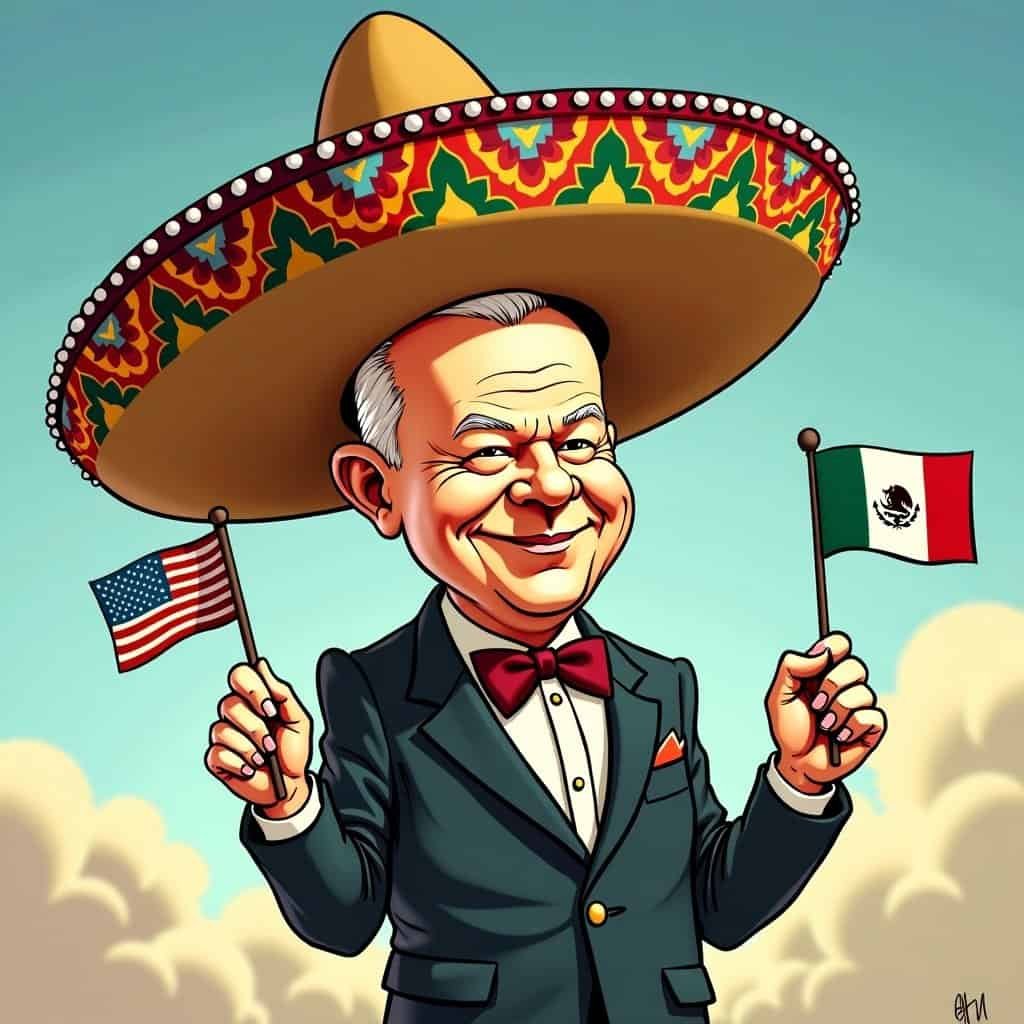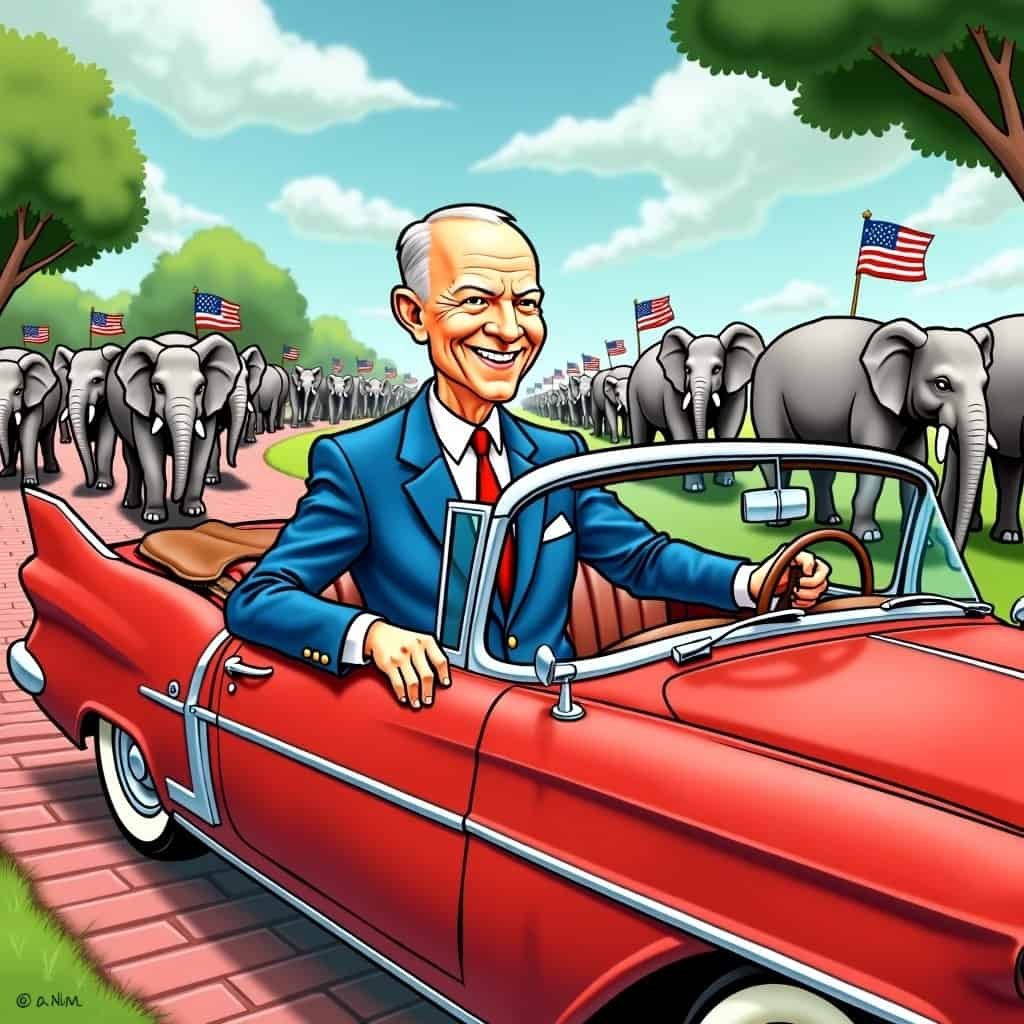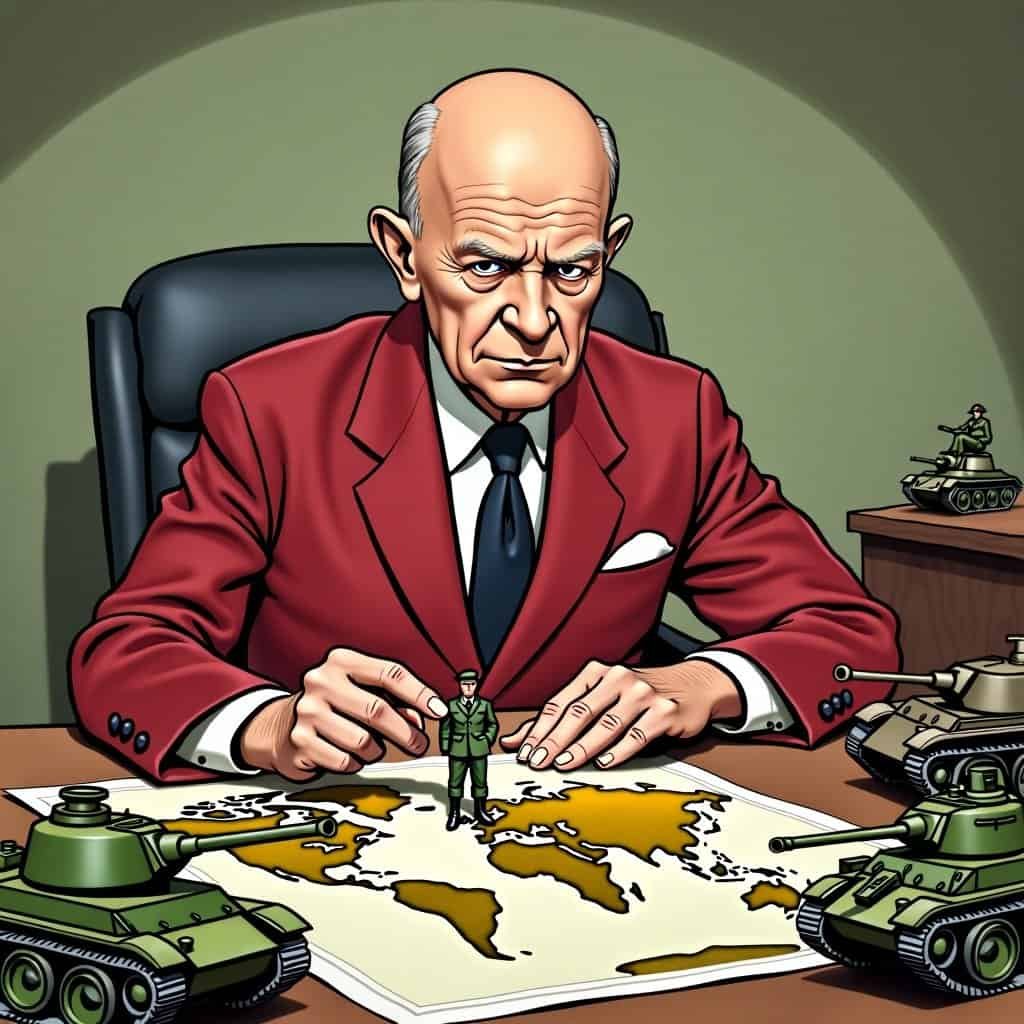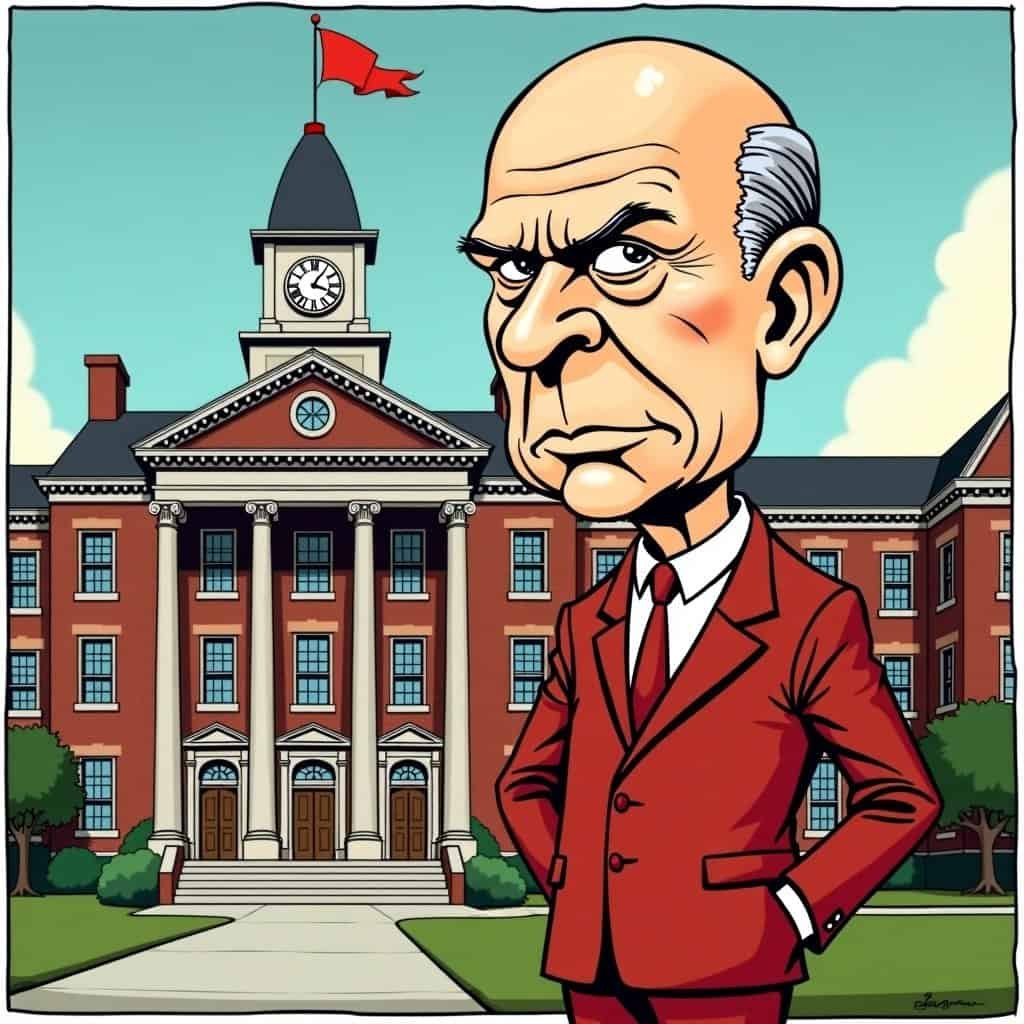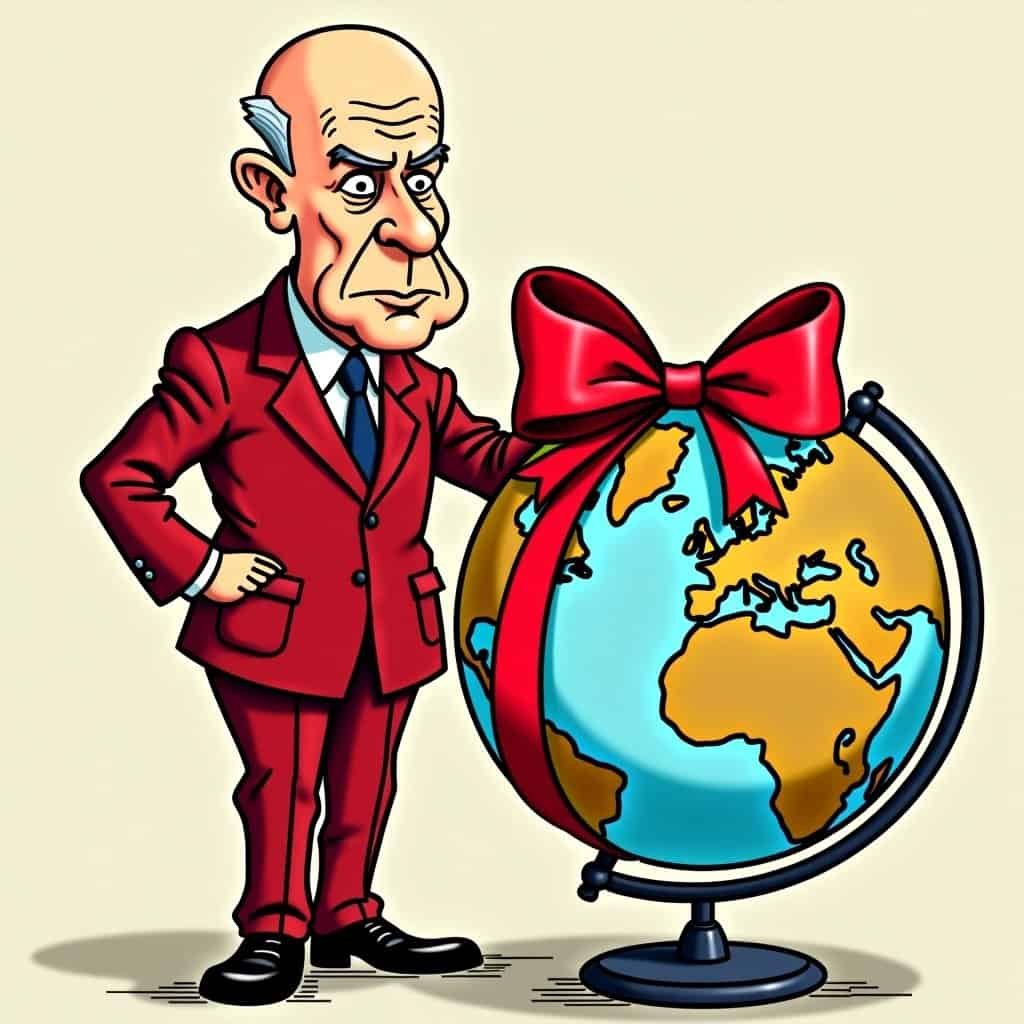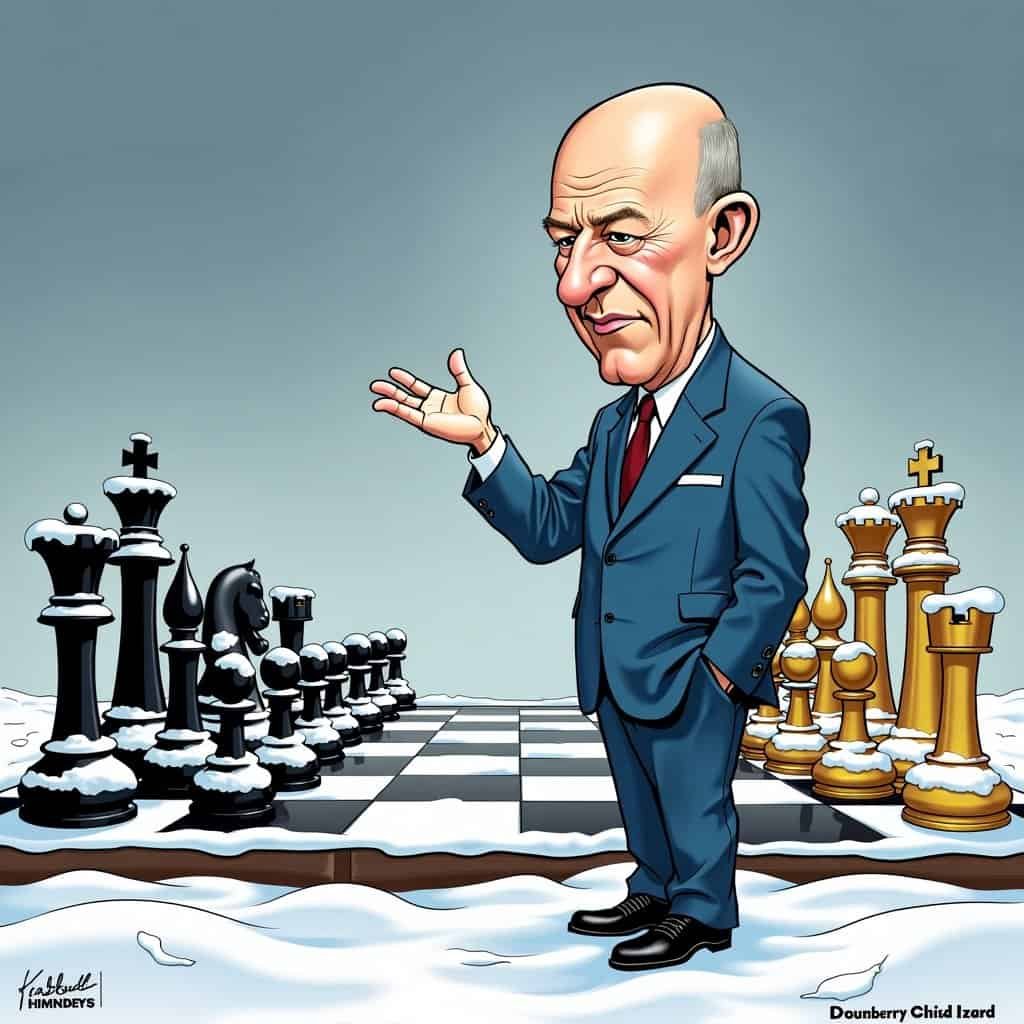Let’s take a trip down memory lane to an era when rock and roll was just heating up, and the word “internet” was about as believable as a unicorn sighting. We’re talking about the time of Dwight D. Eisenhower, our legendary 34th president, who was all about strengthening U.S.-Mexico relations – and let’s face it, he did it with a certain conservative flair that would make even the toughest critics tip their hats.
You see, Ike was a man who knew the value of a good neighbor. Unlike those liberal-progressive dreamers who fancy endless debates and theoretical blessings of spreading wealth around, Eisenhower believed in action – swift, decisive, and as American as apple pie. Now, I know what you’re thinking: Did he do it all while wearing a cowboy hat? I like to think he did.
Eisenhower’s Diplomatic Finesse
Let’s give credit where credit is due. Under the Eisenhower administration, the United States and Mexico saw a certain camaraderie that was as refreshing as a glass of sweet tea on a hot summer day. This wasn’t just your run-of-the-mill friendship. It was strategic and mutual respect wrapped in diplomatic finesse. While Ike handled the Soviet threat like a pro, he also managed to charm Mexico into our economic circle of trust. How’s that for multitasking?
“A prosperous Mexico meant a stronger economy for us – something today’s bigger-government enthusiasts might learn from.”
The Concept of Mutual Benefit
Eisenhower believed in something called mutual benefit, a concept as shiny as a new downtown street lamp. With Mexico, this meant trade agreements and economic policies that didn’t just pad American pockets but also helped our fellows south of the border. Considering today’s climate, where some folks balk at the thought of a single American dollar crossing international lines, Eisenhower’s approach was nothing short of genius.
Eisenhower’s Good Neighbor Policy Highlights
- ✅ Strengthened U.S.-Mexico relations
- ✅ Promoted mutual economic growth
- ✅ Fostered cultural exchanges
- ✅ Improved infrastructure connections
- ✅ Balanced diplomacy with conservative values
The Good Neighbor Policy in Action
The Good Neighbor policy wasn’t just some catchy slogan. It was Eisenhower’s polite yet firm handshake with Mexico, a symbol of respectful partnership that somehow blended cultural exchanges with economic growth. Today, we call this soft diplomacy, but back then? It was just Ike being Ike – practical, no-nonsense, and dare I say, effective.
Infrastructure Bonds: Paving the Way for Progress
Let’s not forget the infrastructure bonds fostered under Eisenhower. He knew that roads weren’t just blacktop ribbons but vital arteries of commerce and camaraderie. Building stronger highways between the U.S. and Mexico wasn’t about mere travel; it was about connecting hearts and markets. It’s like I always say, good roads lead to great destinations – both literal and figurative.
Lessons for Today’s Policies
Now, as we sip our coffees and mull over these historical tidbits, consider this: What if today’s policies leaned a little more on Ike’s playbook? Don’t panic, progressives, we won’t fold like a cheap suit, but there’s wisdom here. Lower taxes, more private investment, and, yes, even giving our neighbors a share of the prosperity can create an ecosystem bustling with innovation and success.
Conclusion: Eisenhower’s Lasting Legacy
Ultimately, Dwight D. Eisenhower wasn’t just a president; he was an orchestrator of international symphonies, complete with maracas and cowboy boots. His ability to weave conservative economic policies with effective foreign diplomacy showcased the power of conservative ideals. It’s high time we remember that conservativism isn’t about closed doors; it’s about more strategic friendships, better trade deals, and, above all, a prosperous America leading the way – just as Ike envisioned.
Table of Contents
- Eisenhower’s Diplomatic Finesse
- The Concept of Mutual Benefit
- The Good Neighbor Policy in Action
- Infrastructure Bonds: Paving the Way for Progress
- Lessons for Today’s Policies
- Conclusion: Eisenhower’s Lasting Legacy
